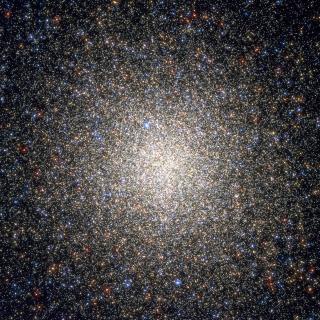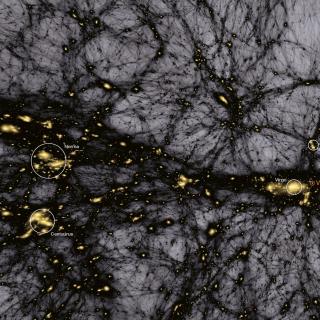Bibcode
CHEX-MATE Collaboration; Arnaud, M.; Ettori, S.; Pratt, G. W.; Rossetti, M.; Eckert, D.; Gastaldello, F.; Gavazzi, R.; Kay, S. T.; Lovisari, L.; Maughan, B. J.; Pointecouteau, E.; Sereno, M.; Bartalucci, I.; Bonafede, A.; Bourdin, H.; Cassano, R.; Duffy, R. T.; Iqbal, A.; Maurogordato, S.; Rasia, E.; Sayers, J.; Andrade-Santos, F.; Aussel, H.; Barnes, D. J.; Barrena, R.; Borgani, S.; Burkutean, S.; Clerc, N.; Corasaniti, P. -S.; Cuillandre, J. -C.; De Grandi, S.; De Petris, M.; Dolag, K.; Donahue, M.; Ferragamo, A.; Gaspari, M.; Ghizzardi, S.; Gitti, M.; Haines, C. P.; Jauzac, M.; Johnston-Hollitt, M.; Jones, C.; Kéruzoré, F.; LeBrun, A. M. C.; Mayet, F.; Mazzotta, P.; Melin, J. -B.; Molendi, S.; Nonino, M.; Okabe, N.; Paltani, S.; Perotto, L.; Pires, S.; Radovich, M.; Rubiño-Martin, J. A.; Salvati, L.; Saro, A.; Sartoris, B.; Schellenberger, G.; Streblyanska, A.; Tarrío, P.; Tozzi, P.; Umetsu, K.; van der Burg, R. F. J.; Vazza, F.; Venturi, T.; Yepes, G.; Zarattini, S.
Bibliographical reference
Astronomy and Astrophysics
Advertised on:
6
2021
Journal
Citations
77
Refereed citations
65
Description
The Cluster HEritage project with XMM-Newton - Mass Assembly and Thermodynamics at the Endpoint of structure formation (CHEX-MATE) is a three-mega-second Multi-Year Heritage Programme to obtain X-ray observations of a minimally-biased, signal-to-noise-limited sample of 118 galaxy clusters detected by Planck through the Sunyaev-Zeldovich effect. The programme, described in detail in this paper, aims to study the ultimate products of structure formation in time and mass. It is composed of a census of the most recent objects to have formed (Tier-1: 0.05 < z < 0.2; 2 × 1014 M⊙ < M500 < 9 × 1014 M⊙), together with a sample of the highest mass objects in the Universe (Tier-2: z < 0.6; M500 > 7.25 × 1014 M⊙). The programme will yield an accurate vision of the statistical properties of the underlying population, measure how the gas properties are shaped by collapse into the dark matter halo, uncover the provenance of non-gravitational heating, and resolve the major uncertainties in mass determination that limit the use of clusters for cosmological parameter estimation. We will acquire X-ray exposures of uniform depth, designed to obtain individual mass measurements accurate to 15 − 20% under the hydrostatic assumption. We present the project motivations, describe the programme definition, and detail the ongoing multi-wavelength observational (lensing, SZ, radio) and theoretical effort that is being deployed in support of the project.
Related projects

Milky Way and Nearby Galaxies
The general aim of the project is to research the structure, evolutionary history and formation of galaxies through the study of their resolved stellar populations, both from photometry and spectroscopy. The group research concentrates in the most nearby objects, namely the Local Group galaxies including the Milky Way and M33 under the hypothesis
Martín
López Corredoira

Cosmology with Large Scale Structure Probes
The Cosmic Microwave Background (CMB) contains the statistical information about the early seeds of the structure formation in our Universe. Its natural counterpart in the local universe is the distribution of galaxies that arises as a result of gravitational growth of those primordial and small density fluctuations. The characterization of the
FRANCISCO SHU
KITAURA JOYANES